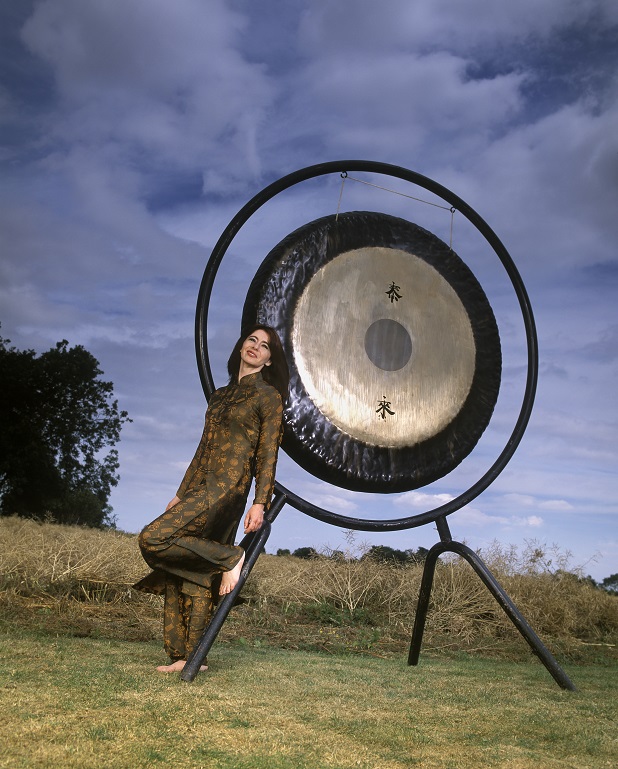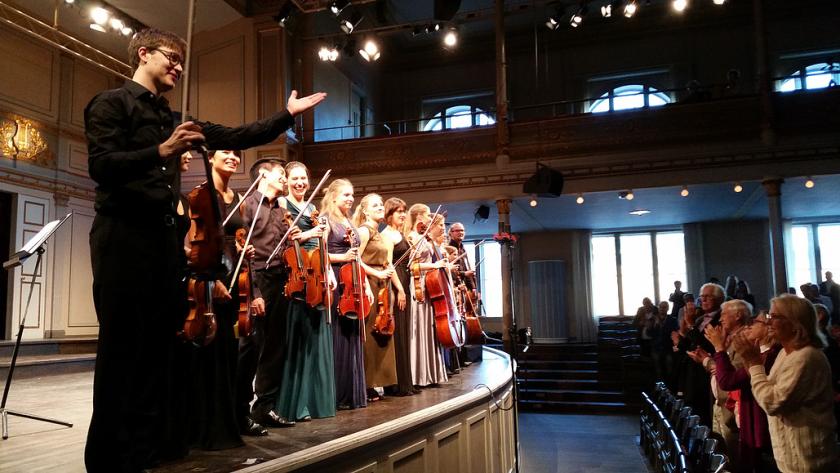It is a truth not widely acknowledged in the UK as yet that Robin Ticciati's elder brother Hugo is no less fine a shaper of musical thought. He could, as his solo playing last night richly proved, have had a career as a virtuoso violinist playing with all the world's great orchestras. Instead he chose a much more individual path: inspiring, even electrifying a group of musicians in Sweden, forging highly original programmes in which the so-called "old" – for which read timeless – comes up freshest in the company of the new.
As soloist, he had no fear of comparisons here with the ever-phenomenal Evelyn Glennie. Those passages in Jill Jarman's Mindstream where the violin sparred with marimba and vibraphone ricochets felt like white-heat improvisation – we could have done with even more of that between the two. Improvisation there was, for all the strings glissandoing into what sounded like Dowland. That followed Glennie's breathtaking opener, Prim, a solo for snare drum composed by Iceland's top composer Áskell Másson.
Jarman's first-half main event was fitful in a way that the awkwardly-expressed premise advising us to live in the moment maybe hadn't contemplated: meandering Piazzolla-lite moodiness punctuated by syncopated, jazzy, dancing brilliance. It was entirely thanks to the rhythmic knife-cut of all involved that the dances, and above all the buzzing last minutes, worked so well.
 The real mindfulness-meditation sequence would have been Glennie's tam-tam solo (the two pictured right by Eric Richmond) after the interval, notated in James Tenney's Having Never Written a Note for Percussion as a single-note crescendo and diminuendo over 12 or so minutes. What broke the spell not long into the near-silence were coughs, sneezes, whispers and what sounded like exploding temperance beverages: you had to laugh when you needed to be entirely focused on the infinite variety of timbres and overtones Glennie could produce by moving her two sponged sticks over the surface of the instrument.
The real mindfulness-meditation sequence would have been Glennie's tam-tam solo (the two pictured right by Eric Richmond) after the interval, notated in James Tenney's Having Never Written a Note for Percussion as a single-note crescendo and diminuendo over 12 or so minutes. What broke the spell not long into the near-silence were coughs, sneezes, whispers and what sounded like exploding temperance beverages: you had to laugh when you needed to be entirely focused on the infinite variety of timbres and overtones Glennie could produce by moving her two sponged sticks over the surface of the instrument.
Players, if not the audience, were fully focused, sitting on the floor and then rising quietly one by one to launch straight into Tchaikovsky's Serenade for Strings. In what is perhaps his sunniest work, and certainly one of his top masterpieces, the composer gets the most out of rising and falling scales, or portions of scales. Ticciati so clearly led his fellow strings to draw even more from them with an infinite variety of dynamics.
The Élégie's framing tendernesses drew more shades of piano than one would have thought possible; the opening movement's dance was disciplined and nuanced, the finale's folk tunes allowed the players to rip and pluck with a joyful modernity that was wholly appropriate. And above all Ticciati showed his directing, for which read conducting, instinct as leader with the most perfect openings and endings of movements, the mark of real greatness in music-making, and a rubato throughout the ineffable waltz of which brother Robin would have wholeheartedly approved.













Add comment